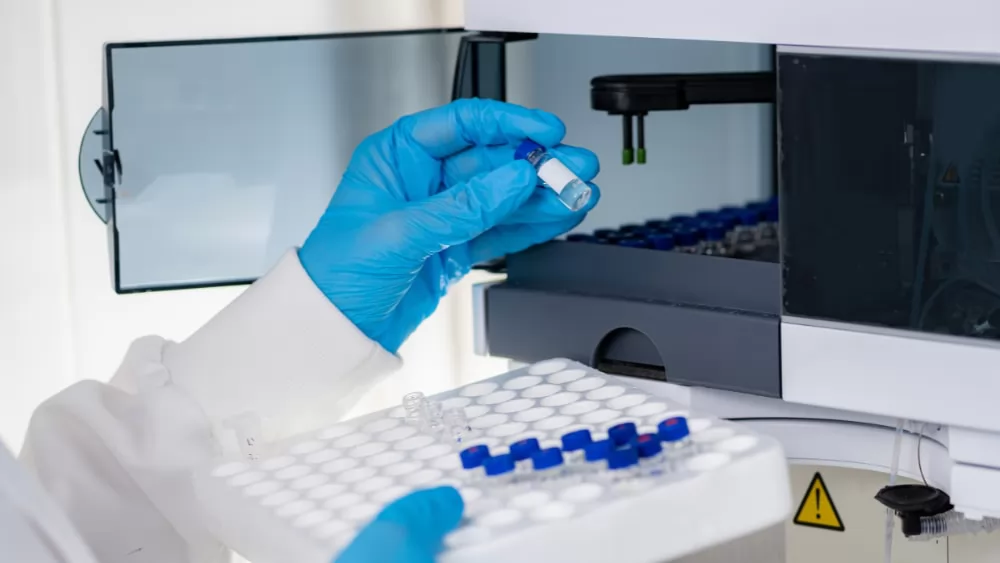What affects the service life of chromatography resins?

Chromatography technology has become an increasingly indispensable step in the processing of biologics. Generally speaking, the manufacturing of biologics involves multiple chromatographic steps, where residual impurities are reduced to the lowest level to comply with the safety standards of exogenous materials.
On account of the safety and effectiveness of biopharmaceutical drug products, relevant supervision authorities in different countries have specified requirements on the chromatography resin lifecycle and the corresponding acceptance limit, indicating the significant role of lifecycle validation in the chromatography resin process validation.
Since chromatography resin cost accounts for a significant percentage of the whole manufacturing process, the time resin can be used or the cycles (resin lifecycles) will play an essential role in the cost control of the manufacturing process.
From this article you will learn:
-
Factors influencing resin lifecycle decline
-
Precautionary measures in chromatography process
-
Resin lifecycle studies
-
Acceptance criteria of resin lifecycle study
-
Conclusion
Factors influencing resin lifecycle decline
The service life of chromatography resins can be influenced by several factors, and their longevity depends on various aspects related to the resin type, the nature of the samples being processed, and the operational conditions. Here are some key factors that can affect the service life of chromatography resins:
1. Chemical Compatibility
Chromatography resins are designed for specific applications and may have limitations in terms of chemical compatibility. Exposure to harsh chemicals or extremes in pH can lead to resin degradation or changes in performance over time.
2. Sample Characteristics
The composition and properties of the samples being processed can impact resin life. High concentrations of salts, proteins, or other contaminants may lead to fouling or irreversible binding, affecting the resin's efficiency.
3. Operating Conditions
The conditions under which the chromatography process takes place, such as flow rates, temperature, and pressure, can influence resin stability and performance. Excessive pressure or temperature extremes may contribute to resin deterioration.
4. Cleaning and Regeneration Procedures
Proper cleaning and regeneration protocols are essential for maintaining resin performance over time. Resins may be susceptible to fouling, and regular cleaning or regeneration steps should be followed according to the manufacturer's recommendations.
5. Mechanical Stress
Physical stress, such as high flow rates, can affect the resin's integrity. The resin beads may break or wear out prematurely if subjected to excessive mechanical stress during the chromatography process.
6.Storage Conditions
The way chromatography resins are stored when not in use can impact their stability. Improper storage conditions, such as exposure to extreme temperatures or humidity, can lead to degradation.
7. Column Compatibility
The design and material of the chromatography column can also play a role. Incompatibility between the resin and column materials may lead to unwanted interactions that affect resin performance.
Precautionary measures in chromatography process
Effective cleaning and sanitization steps help to ensure the performance of manufacturing process and product performance. However, the strict cleaning conditions will inevitably compromise the lifecycle of resin. Fortunately, several measures can be taken to prolong the life span of resin by reducing the resin burden during the manufacturing process.
✔ Remove solid impurities via centrifugation and filtration methods in order to prevent blockage of sieve net and resin pores.
✔ Strictly comply with GMP(good manufacturing practices) in daily operation, to eliminate the risk of contaminants introduction by operating personnel.
✔ The adoption of closed operation of chromatography resin and the on-site buffer preparation system boosts the accuracy and reproducibility of the manufacturing process via reduced introduction of microbial and endotoxin.
✔ By choosing the suitable cleaning, sanitization regents, and key parameters, obtain a balance between the effective cleaning method and resin stability.
Resin lifecycle studies
Analytical method of resin lifecycle shall be able to reflect the scale of commercial manufacturing process, alternatively present the correlation between resin lifecycle and manufacturing scale.
|
Strategy |
Concurrent validation |
Prospective validation |
|
Method |
Lifecycle studies at commercial scale |
Lifecycle studies at small scale |
|
Test chromatographic column efficiency every N cycles |
Test chromatographic column efficiency every N cycles |
|
Perform a blank run every N+1 cycles |
Perform a blank run every N+1 cycles |
|
Quarantine collected sample in the last N cycles till all detected parameters meet quality standards |
Once getting the resin lifecycle in small scale application, conduct validation at large scale when using suitable security coefficient. |
|
Advantage |
No need of scale-down |
Majority work is done at small scale(faster, more cost-effective), suitable security coefficient, no waste |
|
Disadvantage |
At any time point, risk for N failure is existent. |
Data of scale-down model can merely be regarded as guidance, which shall be confirmed in commercial scale application. |
Note: Supervision frequency (N)can be adjusted according to the understanding of process technology and practical situations.
Acceptance criteria of resin lifecycle study
The lifecycle of resin shall be defined by the criteria of detection parameters. Criteria of detection parameters can be set as a specific cut-off standard. For example, yield >80%, SEC-HPLC purity >95%, etc. Alternatively, it can also be defined by the consistency among cycles, when no specific criteria will be set.
Conclusion
In conclusion, as the vital raw material in the downstream processing of biopharmaceuticals, chromatography resin possesses close relationship between its property and quality of biological drugs. The resin lifecycle validation experiment can not only boost controllability and cost-effectiveness of production process, but also act as a reliable guarantee for commercial scale production.
As one of the leading chromatography resin manufacturers in China, we are able to provide you with chromatography resins in various specifications. If you need to purchase a batch of high-quality chromatography resin products for your project. Then please contact us. We will provide you with the best service support.
Recommended related content








.png)


